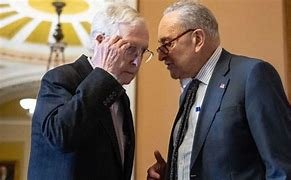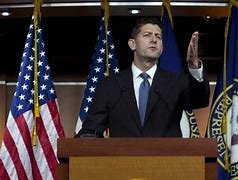
Top US senators have secured a tentative agreement to avoid a temporary government shutdown before a budget deadline on Friday.
Four financial legislation will now be extended until March 8, with the remainder of the budget being prolonged until March 22.
“We agree that Congress must work across party lines to fund our government,” senior US legislators said in a joint press release.
The House is set to vote on the temporary bill as early as Thursday. Democrats and Republicans have been at odds during budget discussions over border security and aid to Ukraine.
Lawmakers experience a slender majority

Republicans enjoy a slender majority in the House, while Democrats control the Senate by a single member. Spending measures to keep the US government open require support from both parties in order to pass through both chambers and reach the president’s desk for signatures.
Over the last four decades, the US government has shut down or partially shut down ten times. House and Senate negotiators reached a bipartisan agreement on Wednesday, one day after legislative leaders visited the White House to meet with President Joe Biden.
It will be “voted on by the House and Senate this week,” according to a statement issued by the Speaker of the House Mike Johnson, Senate Majority Leader Chuck Schumer, Senate Republican Leader Mitch McConnell, and House Democratic Leader Hakeem Jeffries.
The House leaders now must persuade rank-and-file legislators to embrace the accord.
Speaker faces opposition

The Speaker faces strong opposition from right-wing MPs in his party, who demand expenditure cutbacks and insist that any further help for Ukraine be linked to extra funding for US border protection.
Those same lawmakers ousted the former Speaker, Kevin McCarthy, in October, after being outraged by a short-term budget agreement Mr McCarthy reached with Democrats.
If a compromise is not struck, around 20% of government departments, including those in charge of agriculture, transportation, and veterans affairs, will be temporarily closed by 12:01 p.m. on Saturday.
Other federal funds, such as military, homeland security, and state department budgets, expire a week later. Past shutdowns resulted in federal employee furloughs and a shutdown of national parks.










